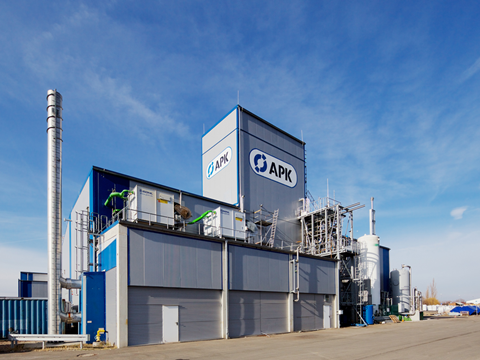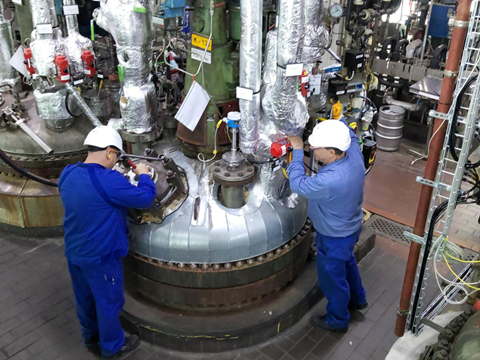
APK AG has successfully scaled its proprietary Newcycling technology for the recycling of post-consumer plastic waste, focusing on the material stream for flexible, multi-material packaging waste.
The company says the Newcycling technology combines mechanical pre-treatment steps with solvent-based purification and separation processes. Apparently this allows the physical technology to recycle complex, flexible packaging waste - such as multilayer films - and to obtain high-quality, pure recyclates.
After being scaled up based on waste from multilayer film production and tested up to commercial LDPE and PA products, Newcycling is targeting post-consumer waste. APK AG claims its post-consumer LDPE recyclates reduce emissions by at least 50% compared to virgin material (according to ifeu 2022), and the scaling of post-consumer Newcycling was advanced due to company’s subsidiary APK Newcycling Competence Center GmbH.
In 2022, APK acquired the technical centre in the Höchst Industrial Park, Frankfurt am Main, to prepare and optimize processes for later production. This reportedly resulted in the volume increasing 200-fold and the quality of the recyclates was successfully reproduced and optimised in terms of decolorization and yield.
“We have shown that recyclates from our campaigns can be used for personal care packaging, especially for cosmetic rinse-off applications. External toxicologists have confirmed this based on our data,” explains Hagen Hanel, head of technology and science at APK AG.
The company aims to use recyclates from its campaigns in personal care packaging including cosmetic rinse-off applications. It states that plastic recyclates that meet the quality requirements for use in personal care and cosmetic packaging are in short supply, and the current changes to the EU packaging regulation continue to drive demand.
It adds that harmonized toxicological guidelines and standards can strengthen trust in the market and promote the use of post-consumer recyclates, especially regarding polyolefins such as PP and PE.

In April 2024, the Cosmetics, Packaging and Toxicology consortium (CosPaTox) published a guideline with comprehensive recommendations for the safety assessment of recycled plastics in cosmetics and cleaning packaging. As a member of the consortium, APK AG says it contributed its knowledge and the quality classifications of the Newcycling recyclates are carried out according to the guidelines.
The company plans to maintain APK AG in Merseburg and build further large-scale plants to utilize the Newcycling technology.
In similar news, Aptar Beauty released a new plastic fragrance pump made with post-consumer recycled resin, Color Code PCR, aiming to reduce CO2 emissions by up to 39% versus using conventional resin. The pump is said to include up to 67% of mechanical PCR Plus material in kg CO2e per 1,000 units of the dispensing solution only, made of mechanical PCR resin vs 100% conventional resin.
Berry Global Group recently announced plans to distribute a customizable, rectangular HDPE bottle solution for the beauty, home, and personal care sectors, available with up to 100% post-consumer recycled plastic. Its rectangular shape is set to enable efficient stacking and take up less space in transportation, storage, and on the shelf.
If you liked this story, you might also enjoy:
How are the top brands progressing on packaging sustainability?
The ultimate guide to global plastic sustainability regulation














No comments yet